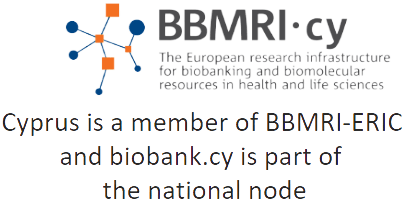CY-GENCARDIO
The study of inherited cardiac conditions in Cyprus
The CY-GENCARDIO projects aims to collect and archive at the University of Cyprus Biobank most, if not all, families segregating inherited heart conditions, with the goal of studying them clinically and genetically. This will enable deriving useful data for our population and lead to easier genetic testing and diagnosis, thereby allowing the development of preventative programs and personalized cardiology for heritable heart conditions. While the project is going to start with main clinical involvement of the Department of Cardiology at the Nicosia General Hospital, future work aims to engage all cardiology departments in the public and perhaps private hospitals, with the purpose to archive the families and patients in one national registry.
Project actions:
- Identification of families segregating recognizable inherited heart diseases, including cardiomyopathies, channelopathies or other known rare heart conditions, and other new families with undiagnosed heart diseases. Preference and priorities will be given to conditions demonstrating Mendelian inheritance but sporadic patients with suspicion of a heritable conditions, eg recessive inheritance or de novo mutation, will be sought to be enrolled and archived too.
- Blood drawing from patients and other undiagnosed family members, for storing biospecimens in the form of DNA, plasma, serum and urine.
- Design and implementation of the CY-GENCARDIO database, that will host all the information concerning the collected biological material of the patients and other undiagnosed family members
Our researchers expect, through CY-GENCARDIO to detect the most prominent cardiomyopathies, channelopathies and other rare inherited heart conditions within the population of Cyprus. Unfortunately, very few studies on inherited heart diseases have been done in the Cypriot population and consequently many people remain undiagnosed and at risk for serious outcomes, without proper follow-up and preventive medication, when available. In particular, this project will result in targeting specific rare heart disorders, of which there are many, making the screening of future families more practical and more cost-effective. Identifying the causative gene defect in a family, not only will lead to early diagnosis of at-risk members who will be offered frequent monitoring and preventive measures, but will also identify members who have not inherited the mutation and relieve the accompanying anxiety, while also excluding them from the burden of frequent follow-up required for carrier members.
While doing so, the project partners aim to relieve much of the clinical burden as the molecular approach will enable faster and more robust diagnosis in many suspect patients, saving lives and money to the Ministry of Health. Expensive and more time-consuming examinations in order to reach a correct diagnosis may become obviated in certain cases as the molecular testing may become the method of choice as a first-tier approach. This in turn, is expected to have a significant impact to the activities of the Ministry of Health and health care policies, which will become available and applicable as early as in the first two years of project implementation.
Project Title:
The study of inherited cardiac conditions in Cyprus – CY-GENCARDIOProject Life Span: 3 yearsProject Budget: €189,900Funded by

Implemented by







